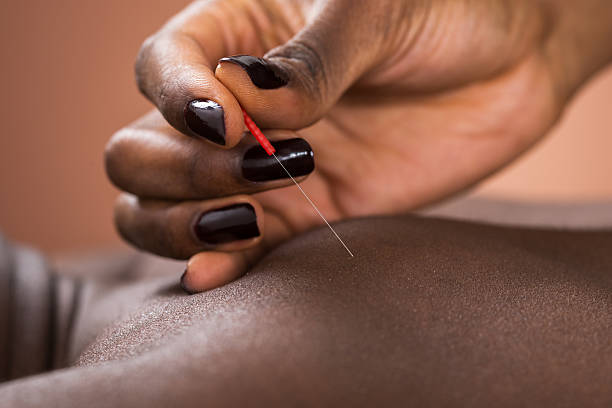
As a breast cancer patient undergoing hormone therapy, you’re likely familiar with the challenge of managing its side effects, particularly hot flashes. These side effects can be debilitating and may even prompt you to consider discontinuing your treatment. However, there’s promising news: acupuncture might offer you relief and improve your quality of life during this challenging time.
The Benefits of Acupuncture
Recent clinical trials have shown that acupuncture can significantly reduce the frequency and intensity of hot flashes in breast cancer patients undergoing hormone therapy. Nearly two in three women who received acupuncture reported fewer and less severe hot flashes. This is a stark contrast to the mere 18 percent improvement reported by those who did not receive acupuncture.
Understanding Hormone Therapy
Hormone therapy is a crucial component of breast cancer treatment for many patients. It works by blocking the effects of estrogen and other hormones that can fuel certain types of breast cancer. Unfortunately, this often leads to hormone deficiencies, causing side effects like hot flashes. In fact, 80 percent of patients experience these uncomfortable symptoms, which can be so severe that some decide to stop their treatment prematurely.
The Study
Researchers conducted a study involving 158 women with early to advanced breast cancers who were undergoing hormone therapy. Half of the participants received acupuncture twice a week for 10 weeks. The results were promising: 64% of the women who received acupuncture reported improvements in the number and severity of their hot flashes, compared to just 18% of those who did not receive acupuncture. Additionally, these women experienced a better overall quality of life.
Long-Term Benefits
After the initial 10-week period, the women who did not receive acupuncture initially were given the opportunity to try it. They too reported significant improvements in their hormone therapy symptoms. Importantly, no side effects from the acupuncture were reported, making it a safe option to consider.
What to Expect from Acupuncture
If you’re considering acupuncture as a complementary therapy for managing the side effects of hormone therapy during breast cancer treatment, it’s important to understand what the process entails and what you can expect:
- Initial Consultation: Your first session will likely begin with a thorough consultation with a licensed acupuncturist. They will review your medical history, discuss your current symptoms and treatment regimen, and assess your overall health and well-being. This consultation is crucial for the acupuncturist to tailor the treatment specifically to your needs.
- Treatment Plan: Based on the consultation, the acupuncturist will create a personalized treatment plan. This plan may involve regular acupuncture sessions, typically ranging from once or twice a week initially, depending on your symptoms and their severity.
- Acupuncture Session: During an acupuncture session, you will be comfortably positioned, usually lying down. The acupuncturist will insert thin, sterile needles into specific points on your body. These points may include areas on your arms, legs, abdomen, and possibly near the site of discomfort or the source of your symptoms, such as hot flashes.
- Needle Sensation: You may feel a slight sensation when the needles are inserted, often described as a tingling or dull ache, but it is generally not painful. Many people find acupuncture to be relaxing and calming during the session.
- Duration: The needles are typically left in place for about 20-30 minutes while you relax. During this time, some individuals may experience a sense of warmth, heaviness, or a slight electrical sensation at the needle site or along the corresponding meridian.
- Post-Session Effects: After the session, you may feel immediate relief from symptoms such as hot flashes, or you may notice gradual improvements over time with regular sessions. Acupuncture is known to have cumulative benefits, meaning that the effects may become more pronounced with each session.
- Holistic Approach: Beyond symptom relief, acupuncture aims to restore balance and promote overall well-being by supporting the body’s natural healing mechanisms. Many people report improvements not only in their physical symptoms but also in their mood, energy levels, and sleep patterns.
- Long-Term Management: Depending on your response to acupuncture, your acupuncturist may recommend a long-term maintenance plan to sustain the benefits throughout your hormone therapy treatment. This may involve fewer sessions spread out over a longer period to help manage any recurring symptoms or to maintain your overall well-being.
- Integration with Conventional Care: It’s essential to communicate openly with your oncologist or healthcare team about your decision to incorporate acupuncture into your treatment plan. Acupuncture is generally safe when performed by a trained practitioner, but it should complement, not replace, conventional medical care.
- Patience and Persistence: Like many holistic therapies, acupuncture may take time to show its full effects. Patience and consistency in attending sessions according to your treatment plan can maximize its benefits and help you navigate through the challenges of hormone therapy more comfortably.
If you’re considering acupuncture, you might start with a short trial period to see how your body responds. Focus on the reduction in hot flashes and any other symptoms you are experiencing. If you notice positive changes, you may choose to continue with a long-term acupuncture program, receiving regular sessions throughout the duration of your hormone therapy.
Acupuncture offers a promising solution to manage the side effects of hormone therapy for breast cancer. By easing symptoms like hot flashes, it can help you stick to your prescribed medication regimen, potentially reducing your risk of cancer recurrence and improving your long-term outcomes. If you’re struggling with the side effects of hormone therapy, acupuncture could be a valuable addition to your treatment plan, enhancing your comfort and quality of life.






